Customer service is undergoing its most radical transformation in decades. Companies that don't adapt now will simply disappear.
The Brutal Reality of Today's Market
As you read this, your competition is already deploying AI agents that work 24/7, resolve queries in seconds, and never have a bad day. Implementing AI in customer service can reduce costs by up to 30%, while approximately 80% of customers who have interacted with AI report positive experiences.
The question isn't whether you should implement AI in your customer service, but how much money are you losing every day you don't?
The Paradigm Shift: From Reactive to Predictive
Before: The Traditional Model (Roto)
Traditional call centers work like hospitals: they wait for the “patient” to arrive sick to try to cure him. Result: frustrated customers, burned out agents, skyrocketing costs.
Now: The AI Agent Revolution
Modern AI agents don't just respond, predict, prevent and personalize. Imagine a system that:
1. Detect frustration in real time and scale automatically
2. Predict needs before the customer verbalises them
3. Customize every interaction based on full history
4. Learn continuously from every conversation
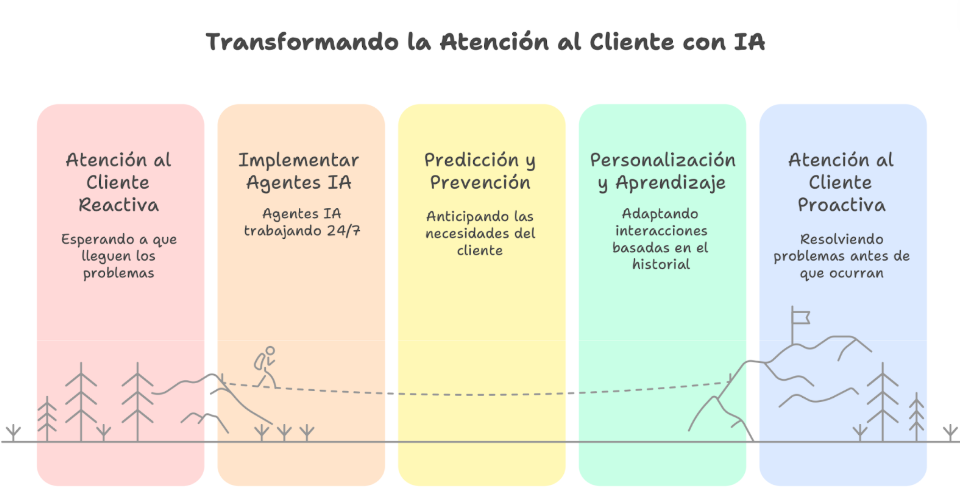
The 4 Pillars of the AI Revolution in Customer Service:
1. Absolute Availability
- Your customers don't work from 9 to 5. Why does your customer support do?
- An AI agent processes inquiries at 3 AM with the same quality as at 3 PM. No breaks, no bad days, no staff turnover.
Case study: An e-commerce company reduced its average response time by implementing AI agents. Klarna reported that its AI system handles the equivalent work of 700 full-time human agents, with a 25% reduction in repetitive queries.
2. Intelligent Scalability
- Black Friday. Product launch. PR crisis. Times where demand is multiplied by 10 in hours.
- AI agents scale instantly. Without hiring, without training, without collapsing.
3. Perfect Consistency
- The most capable human agent has bad days. The AI agent delivers exactly the same quality in the number 1 interaction and in the 10,000.
4. Cumulative Intelligence
- Every conversation makes the system smarter. Every problem solved becomes knowledge for future cases.
- The ROI That Is Transforming Industries
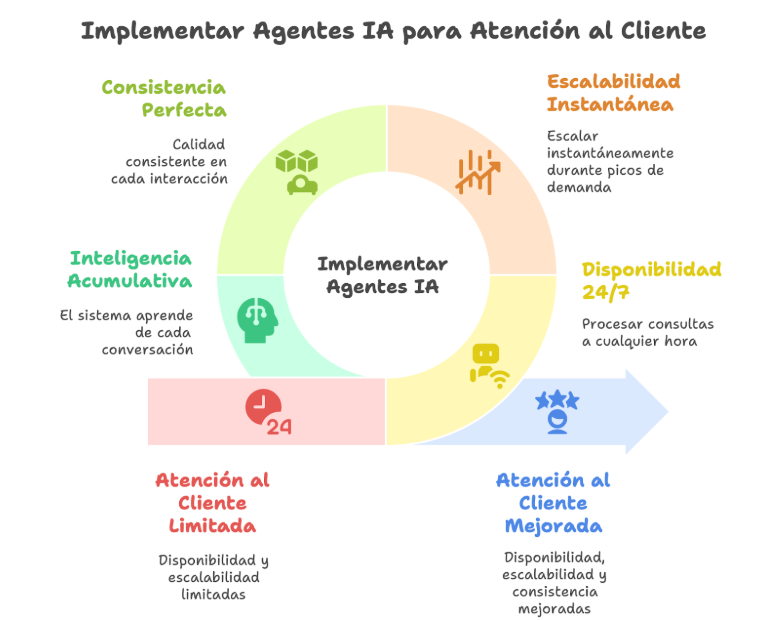
Companies that implement AI agents correctly see results such as:
Cost Reduction:
25-30% lower operating expenses (based on AI implementation projections)
33% reduction in customer service costs with automation
24/7 availability with no additional personnel costs
Experience Improvement:
80% of customers report positive experiences with AI
Instant responses vs traditional wait times
Customization at scale impossible for humans
Business Growth:
95% of decision makers report reduced costs and time
92% believe that generative AI improves their customer service
15.8% CAGR growth forecast in the CXM market until 2030
The Fatal Mistakes 90% of Companies Make
Mistake #1: Thinking You're “Just a Chatbot”
Modern AI agents are complex cognitive systems that understand context, emotions, and intent. Treating them as basic chatbots is like using a Ferrari to go to the supermarket.
Mistake #2: Implementation Without Strategy
“Let's install AI and see what happens” is the perfect recipe for failure. You need a comprehensive strategy that considers processes, data, integration and change management.
Mistake #3: Not Training the System Correctly
An AI agent without specific training for your industry, products and processes is like hiring someone who doesn't speak your language.
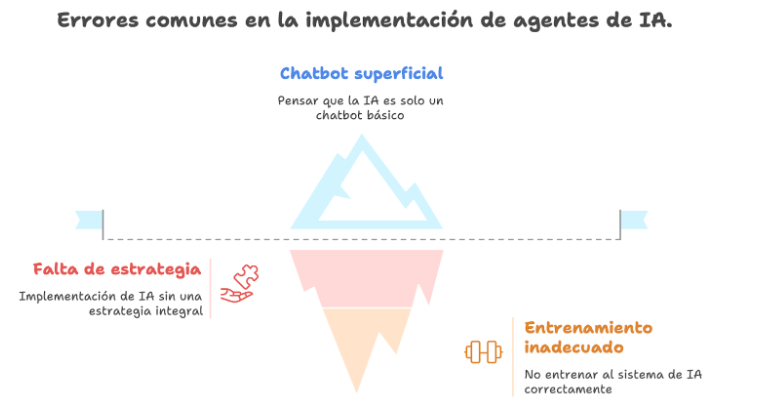
The Successful Implementation Framework
Phase 1: Intelligent Diagnostics
-Full audit of current processes
-Identification of critical pain points
-Customer journey mapping
-Analysis of historical data
Phase 2: Strategic Design
-Definition of priority use cases
-Integration architecture
-Customizing the IA model
-Scaling protocols
Phase 3: Controlled Implementation
-Deployment in a controlled environment
-Extensive testing with real cases
-Internal team training
-Results-based optimization
Phase 4: Scaling and Optimization
-Continuous performance monitoring
-Iterative model improvements
-Expansion to new use cases
-ROI analysis and strategic adjustments
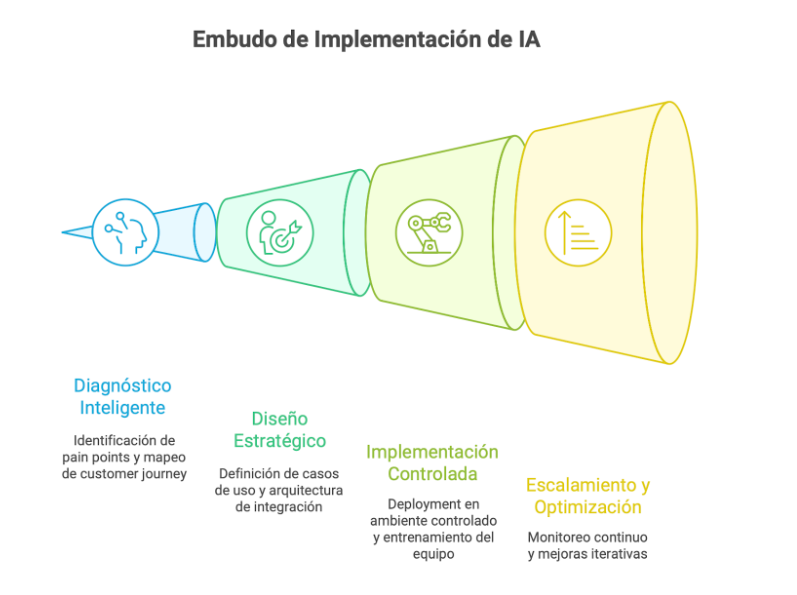
The industries that improved when they implemented AI
- E-commerce: Return management, order tracking, personalized recommendations.
- Fintech: Identity Verification, Dispute Resolution, Basic Financial Advice.
- Healthcare: Intelligent scheduling, symptom triage, post-consultation follow-up.
- SaaS: automated onboarding, technical resolution, subscription management.
The Window of Opportunity Is Closing
2024 was the year of experimentation.
2025 will be the year of mass adoption.
2026 will be too late to be a pioneer.
Companies that implement AI agents will now have 18-24 months of competitive advantage before it becomes a commodity.
The Real Cost of Not Acting
- Every day you post the implementation of AI agents:
- You lose $X in unnecessary operating costs
- Your competition gains Y% more market share
- Your customers get frustrated Z times more with your service
Can you afford to keep waiting?
Your Next Strategic Step
The revolution has already begun. The question isn't if it's going to impact your industry, but whether you'll be leading the change or running to achieve it.
Leaders act while followers analyze.
If your company is ready to lead this transformation, you need a partner who understands both the technology and your business. Someone who has navigated this implementation dozens of times and knows exactly how to avoid costly errors.
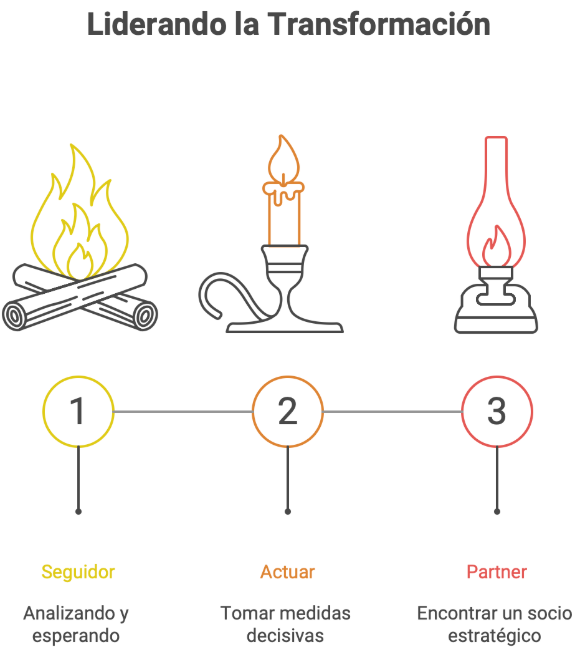
Do you want to know exactly how to implement AI agents in your company without the typical mistakes that cost millions? Schedule a strategic consultation and discover the specific roadmap for your industry.
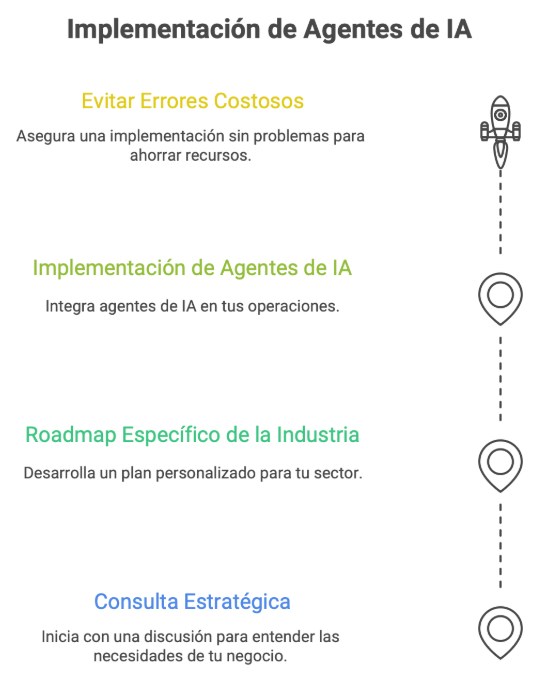
References and Sources
Cited statistics based on:
- VentureBeat: Cost reduction up to 30% with AI implementation
- Tidio: 80% of customers report positive experiences with AI
- Klarna Case Study: Equivalent to 700 FTE agents, 25% reduction in repetitive queries
- Convin: 33% reduction in costs with automation
- Salesforce: 95% report cost reduction, 92% improve customer service
- WhatsTheBigData: Projections of 25-30% reduction and CXM 15.8% CAGR growth



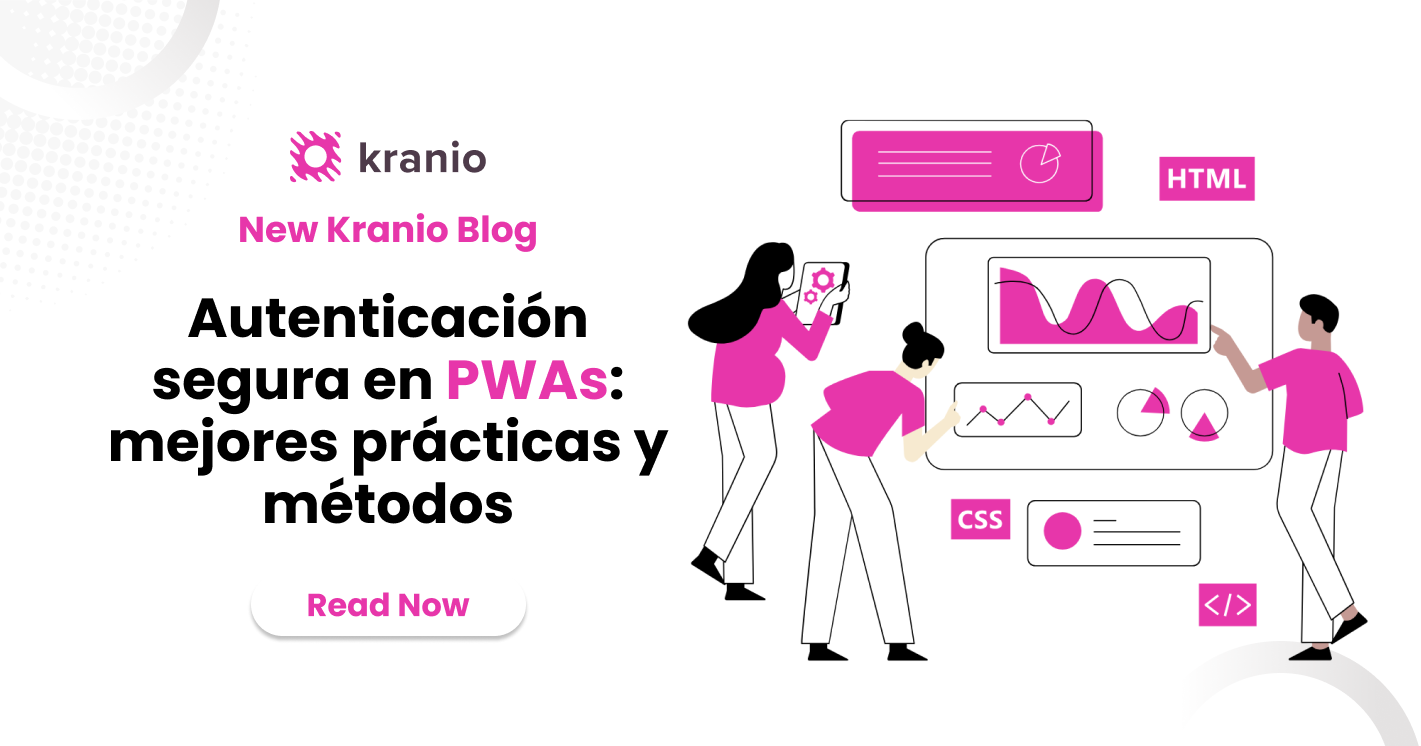



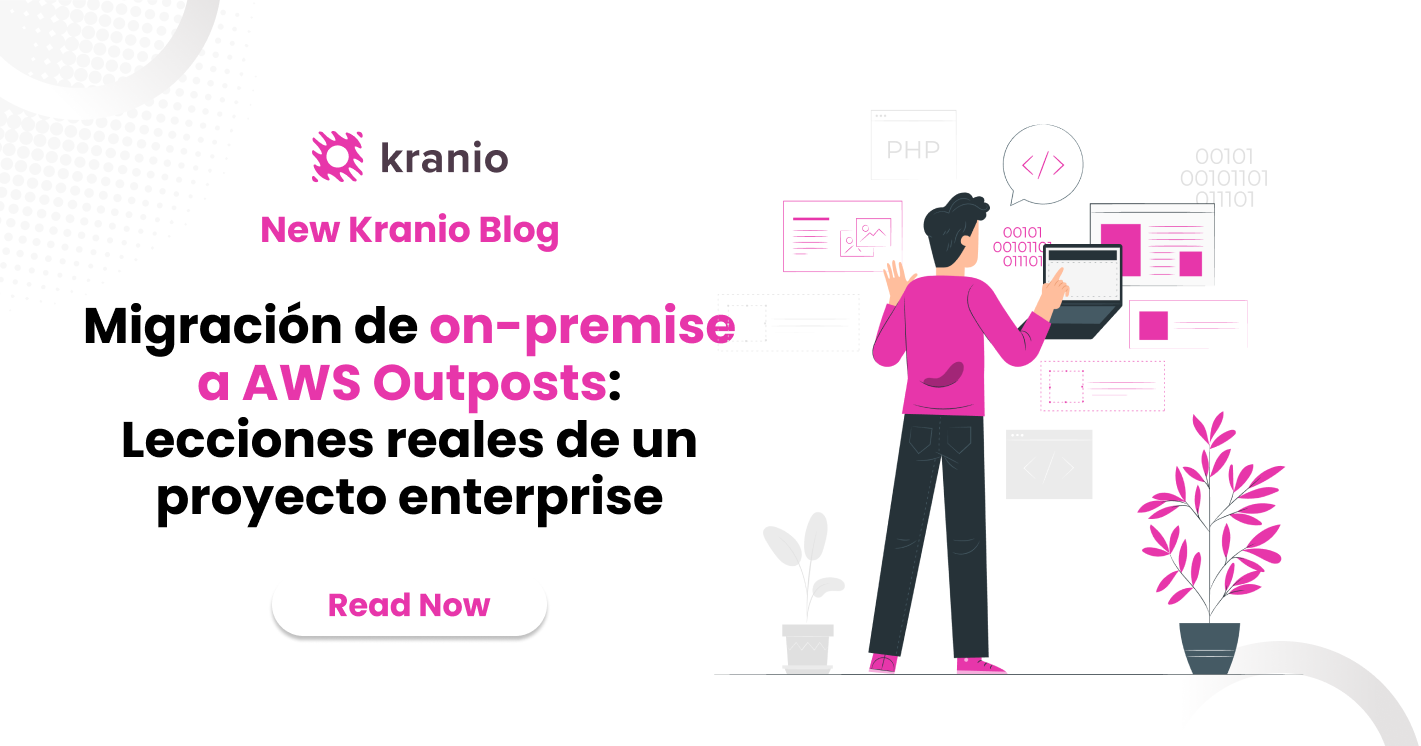



.png)
.png)
